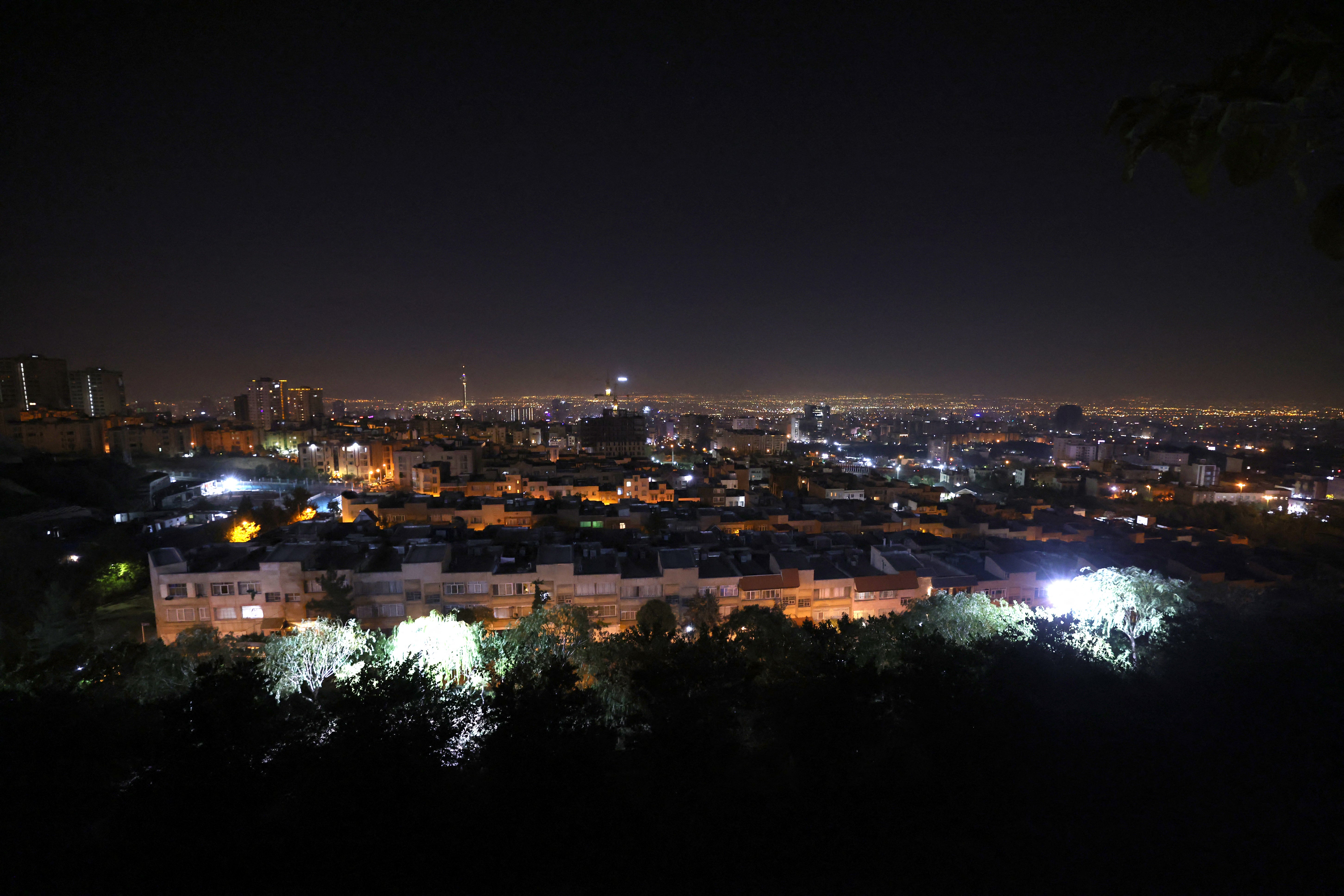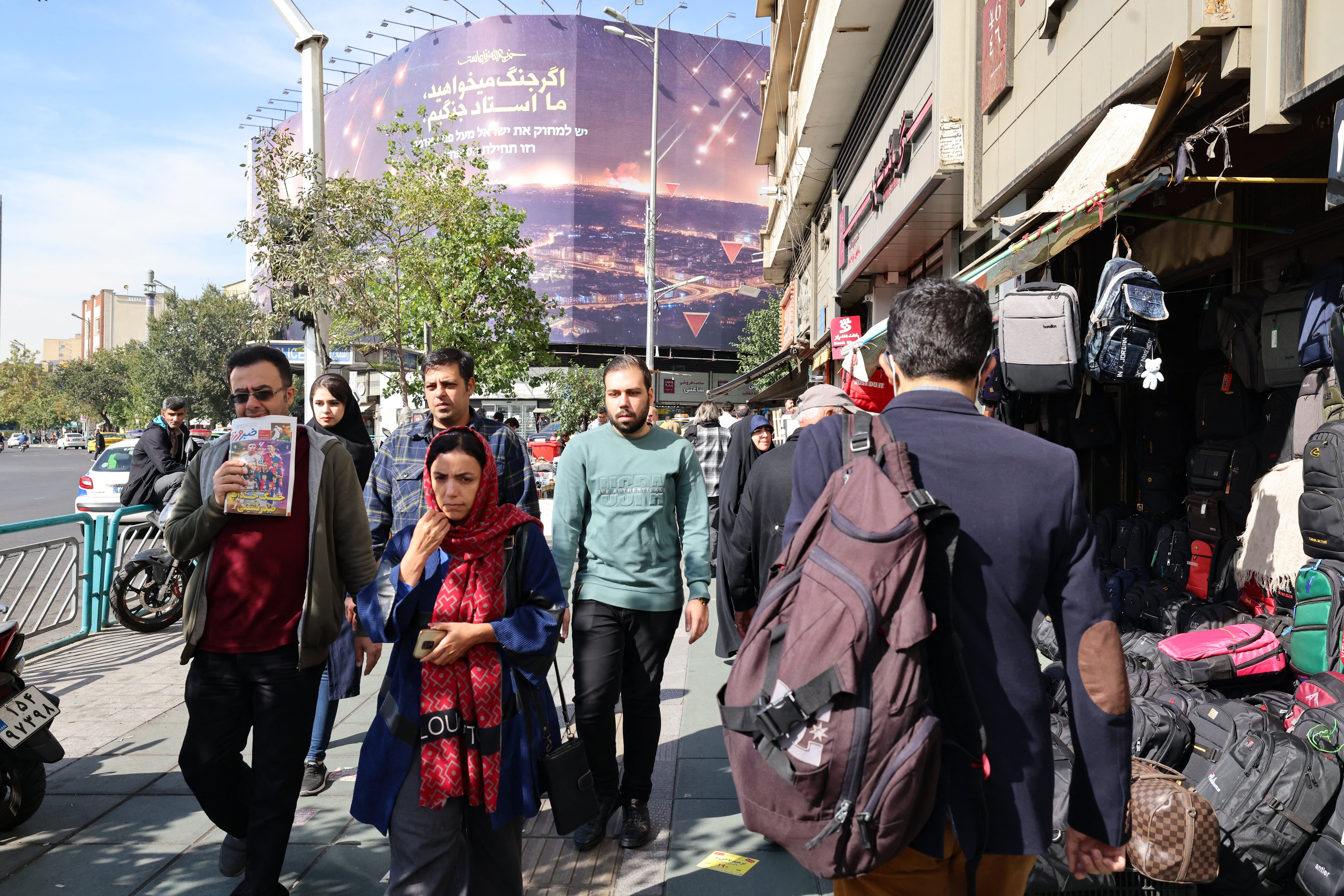Israel’s attack on Iran: Everything we know as IDF targets military sites in Tehran
Iran has said the country has a right to defend itself after Israeli strikes
Your support helps us to tell the story
From reproductive rights to climate change to Big Tech, The Independent is on the ground when the story is developing. Whether it's investigating the financials of Elon Musk's pro-Trump PAC or producing our latest documentary, 'The A Word', which shines a light on the American women fighting for reproductive rights, we know how important it is to parse out the facts from the messaging.
At such a critical moment in US history, we need reporters on the ground. Your donation allows us to keep sending journalists to speak to both sides of the story.
The Independent is trusted by Americans across the entire political spectrum. And unlike many other quality news outlets, we choose not to lock Americans out of our reporting and analysis with paywalls. We believe quality journalism should be available to everyone, paid for by those who can afford it.
Your support makes all the difference.Israel has launched air strikes on military targets inside Iran in retaliation for an Iranian missile attack earlier this month.
Iran’s foreign ministry has said that the country has a right to defend itself “against external aggressive acts”.
Here’s what else we know so far:
When and where did the attacks take place?
Israel struck military sites in Iran early on Saturday. Iranian media began to report explosions in and around the capital Tehran after 2am local time (23:30 BST).
At around 2:30am the Israel Defence Forces (IDF) confirmed that it was carrying out “precise” strikes on military targets in Iran.
They said that the strikes concluded at just after 6am. The IDF said that it hit around 20 targets, including missile manufacturing facilities, and other military sites.
There are no indications that any nuclear, energy or oil targets were hit.
According to Iranian state media, Israel’s strikes hit military bases in Tehran as well as sites in the western province of Ilam and south-western Khuzestan.

What was the damage caused?
Two soldiers were killed in the airstrikes on Iran, according to Iranian state news agency IRNA.
Iran said its air defence system successfully countered Israel’s attacks. They said there had been “limited damage” to some locations.
Why did Israel attack Iran?
Saturday’s strikes were a response to Iran’s October 1 attack on Israel, when Tehran launched 200 ballistic missiles at Israel.
This Iranian attack was part of a tit-for-tat conflict that has been escalating in recent months.
In July, Israel killed a top Hezbollah commander in an airstrike on Beirut, and the next day, Hamas political leader Ismail Haniyeh was killed in an explosion in Tehran.
In late September, Israel killed Brig-Gen Abbas Nilforoushan, a high-ranking Iranian official and Hezbollah leader Hassan Nasrallah.
Dozens of people were also killed in mid-September when communication devices used by Hezbollah were targeted.

Will Iran retaliate?
Iran has said that it is “entitled and obligated to defend itself against external aggressive acts”.
The foreign ministry called the Israeli attack a violation of international law and added that Tehran “recognises its responsibilities towards regional peace and security”.
Iranian media has played down the airstrikes and the US news outlet Axios reported that US and Israeli officials assess that Iran will respond militarily but in a limited fashion.
Military analyst Matthew Savill, from the Royal United Services Institute, said that the Iranians were downplaying the attack “as if they want to avoid escalating further (for now).”
What have world leaders said about the attack?
A senior Biden official has described the Israeli strikes as “precise” and stressed that the attack should be an “end to the exchange of fire between Israel and Iran”.
The Kingdom of Saudia Arabia has expressed “its condemnation and denunciation of the military targeting of the Islamic Republic of Iran, which is a violation of its sovereignty and a violation of international laws and norms.”
The Kingdom also urged “all parties to exercise the utmost restraint and reduce escalation”.
Pakistan has also strongly condemned the Israeli strikes. They said the strikes “undermine the path to regional peace and stability and also constitute a dangerous escalation in an already volatile region.”
Palestinian militant group Hamas has also issued a statement on social media app Telegram, saying that the strikes are a “flagrant violation of Iranian sovereignty and an escalation that threatens the security of the region”.
The United Arab Emirates has also expressed “deep concern over the continued escalation and its impact on regional security and stability”.



Join our commenting forum
Join thought-provoking conversations, follow other Independent readers and see their replies
0Comments